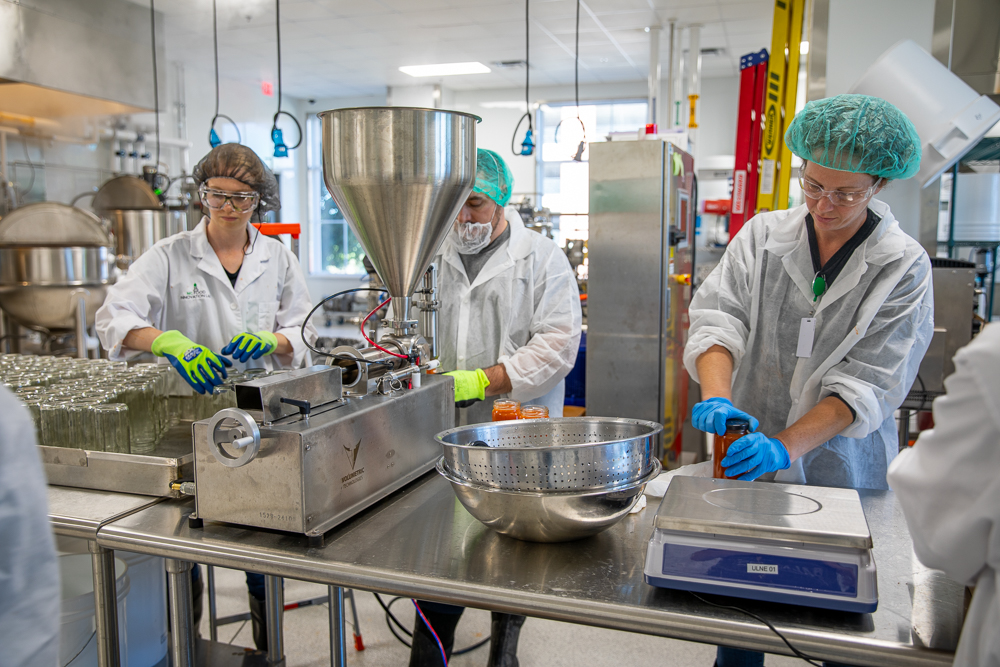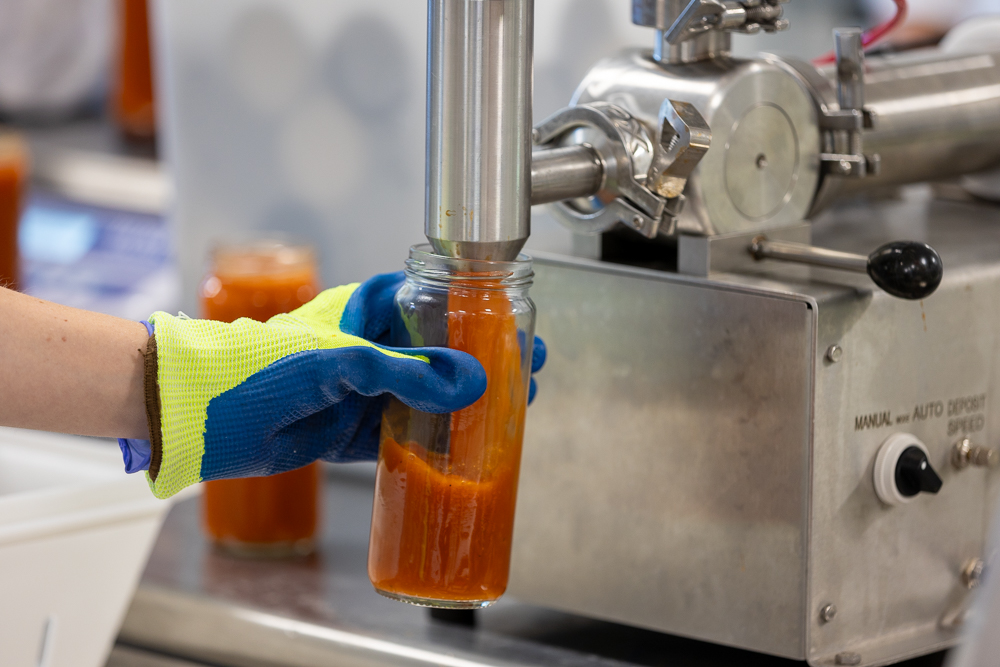Soup Company Partners with NCFIL Following Hurricane Helene

When Hurricane Helene devastated Asheville and much of Western North Carolina in late September, Ilona Kossoff, founder of 18 Chestnuts, considered herself one of the fortunate ones. Her family and employees were unhurt, her home and Asheville production facility weren’t destroyed, and the electricity was restored quickly enough that frozen ingredients did not defrost.
However, she had low inventory and a backlog of orders to fill — and Asheville had no water supply. “I had to think on my feet,” says Kossoff. “I went through every idea I had.”
It was Ted Andrew, vice president with beaconpoint labs, who ended up connecting Kossoff with NCFIL. “When I heard about the recent challenges brought on by the storm, there was only one team I trusted to step in and help keep Illona’s and 18 Chestnut’s journey on track: the dedicated team at NCFIL,” says Andrew.
Partnering with the facility enabled 18 Chestnuts to continue production and order fulfillment until Kossoff’s own facility and warehouse were operational again. The timely partnership also enabled NCFIL team members to contribute to Western NC recovery efforts by directly supporting a food entrepreneur in need.
How did 18 Chestnuts start?
I was looking for soups on the shelves that could help me overcome a digestive illness, but nothing met my standards — lots of fillers, sodium and other unnecessary ingredients. After becoming a yoga instructor and completing a Healthy Living Nutrition Certificate at Cornell University, I honed in on what mattered to my body and upgraded recipes to make them plant-based, eliminating any ingredient that would jeopardize my health. I went on a soup regimen and healed myself.
Over 70 million Americans struggle with GI related problems, and women are three times more likely to have the symptoms. I wanted to help women like me to feel better, so we started 18 Chestnuts in 2022.
How are your products distributed?
18 Chestnuts is in over 500 grocery stores nationwide, and we ship our soups everywhere except Hawaii and Alaska. We also have an online store where customers can build soup bundles or subscribe for soup deliveries. Our soups are shelf stable for 18 months.
How did NCFIL help 18 Chestnuts after Hurricane Helene?
There wasn’t much in our warehouse at the time Helene hit, but I wasn’t able to produce in Asheville because there was no water supply and, initially, no power. We had been having an incredible September in terms of sales and customer acquisition, and I wanted to fulfill these orders.
When I contacted NCFIL, the staff was kind and understanding and worked quickly to help me. They accommodated us in their schedule and assisted the 18 Chestnuts staff with fulfilling orders and maintaining customer relations. As a small company, this was invaluable.
Because of road conditions and the weight of glass jars, it took six hours to drive the ingredients and jars from our Asheville warehouse to NCFIL in Kannapolis, a drive normally taking two and a half hours. But in those five days, we made 1000 jars of Butternut Squash Pear Soup and 1500 jars of Tuscan Tomato Soup, and we were able to fill our orders.

What was it like working in the production lab?
Prior to September, we weren’t aware of NCFIL, a state-of-the-art facility with millions of dollars of equipment. I brought my own interchangeable head for the Silverson Machine, wanting to achieve the same soup texture. But I ended up not using it as their machine was light years ahead of mine … all I could do was stand in awe. It took a fraction of the time to mix the soups. Normally, it takes me hours.
They also have a machine that peels potatoes very quickly. It took less than two hours to process 1500 pounds of potatoes, which usually takes my staff four hours.
What were some of the most notable differences?
We have a pretty buttoned-down process in terms of accepting food into our kitchen, cleaning and processing it. It was interesting to see the differences in NCFIL’s processes. They have a science background, so the way they look at and think about food is a little different. There are so many safety procedures built into their production, from how they wash their hands with automatic hand washing stations to the doors that only open one at a time.
Are there any ways in which you might work with NCFIL again?
We are always looking to improve our flavors and to develop new ones. Currently, I have 10 SKUs available. Being able to work with Chloe Soliman, an NCFIL food scientist and product developer, will be a valuable resource for our company as she understands food interactions and how different ingredients can be combined.
- Categories: